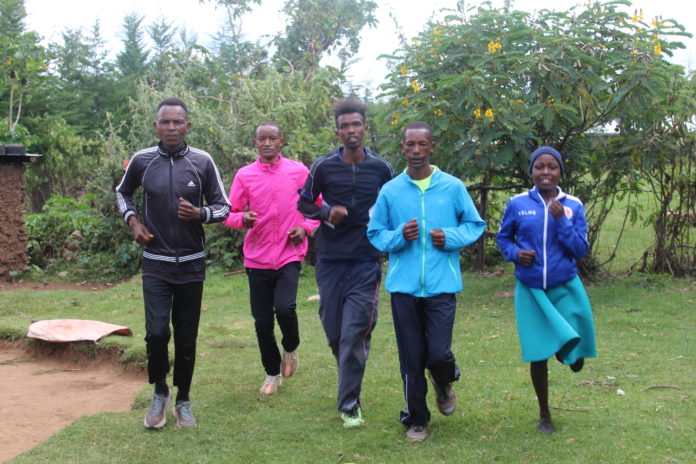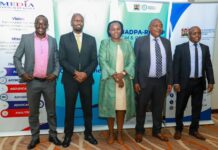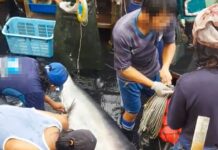By Mary Mwendwa
Nakuru County, Kenya- Inside Mau forest, a crucial water catchment in Kenya’s Riftvalley is where a minority community of Ogiek call home.
The endangered Ogiek communities are spread across the expansive 400,000ha Mau forest. They are a Southern Nilotic ethnic group, who have lived in the Mau and Elgon forests for thousands of years
The thick green forest with spectacular streams, tucked inside Kenya’s Rift Valley, north of Nakuru County, with temporary small homesteads made of mud sheets and wood is what Ogiek community athletes call home.
The Ogiek, who are an indigenous minority community have been routinely evicted by the government from Mau Forest citing encroachment into the catchment area.
On May 26th, 2017, The Court on Human and People’s Rights delivered a landmark judgment on the Ogiek Land rights case against the Kenyan government.
The Kenyan government was found in violation of certain articles of the African Charter.
According to the 2019 census 2019, there were 52,696 Ogieks in Kenya. Famously known for farming, beekeeping, and being Kenya’s last remaining hunter-gatherers, the Ogiek claim that they are left behind in many development opportunities because of their minority status.
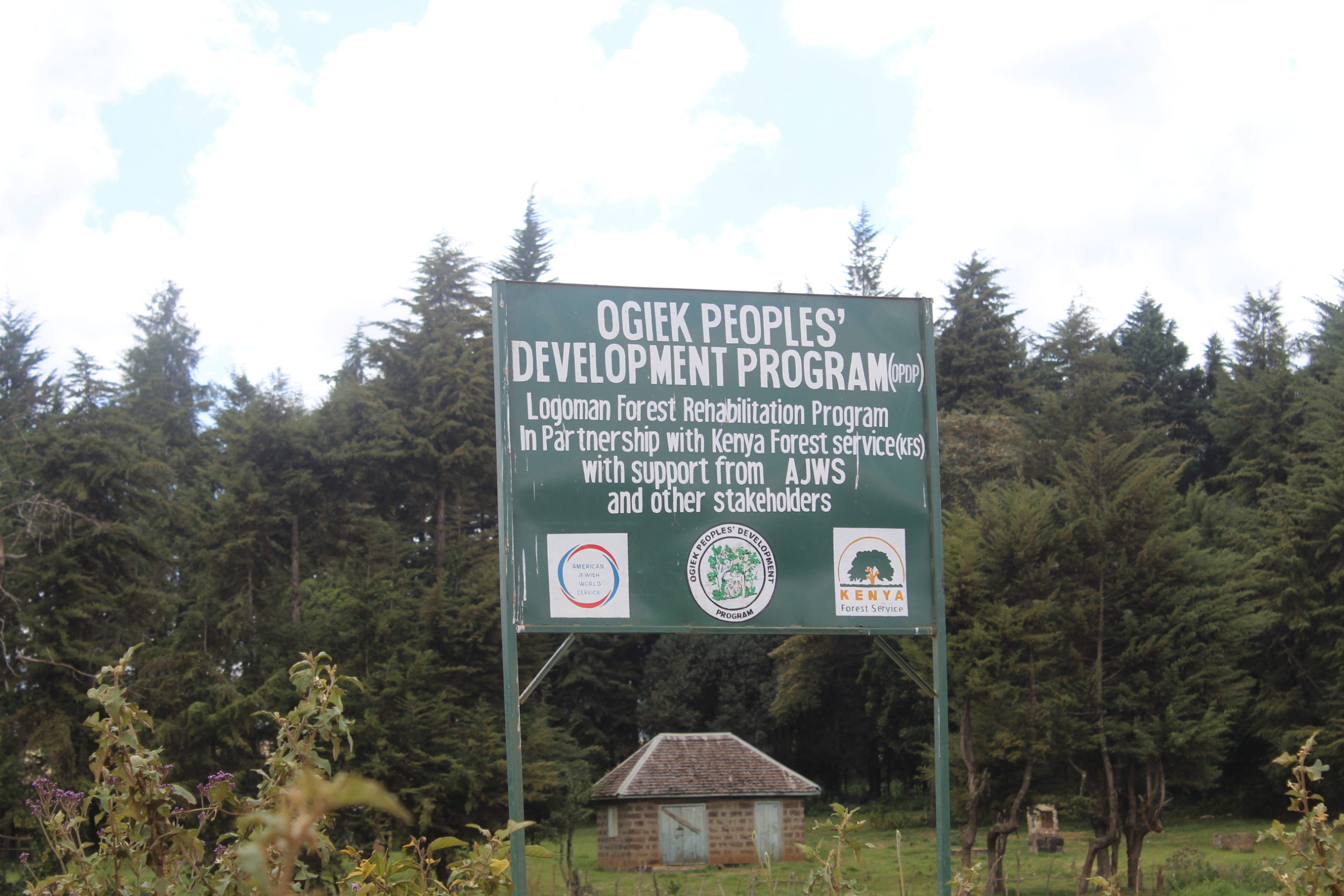
Some of the track athletes from the Ogiek say they never made it to the national team despite meeting the qualification criteria, they have lost chances to shine in their talents.
At the 2021 Tokyo Olympics, Kenya bagged 10 medals, including four gold, but for the first time in nine years, it was not able to win the Olympics men’s 3,000m steeplechase.
The majority of Kenyan athletes who represent the national team come from the larger Kalenjin community.
But, little is known about the talented minority community that is missing out and also being denied chances, according to Saruni Saaya, a Youth Leader for the Ogiek people.
“We have track athletes within our community that nobody has ever selected to the national team despite good performance. We have some of them here in the villages, it’s just that they have never found an opportunity to represent Kenya,” Saaya told Talkafrica.
Talkafrica was not able to independently verify these claims of discrimination, though the writer of this story met some athletes in Mau forest who claimed that they have missed opportunities in athletics.
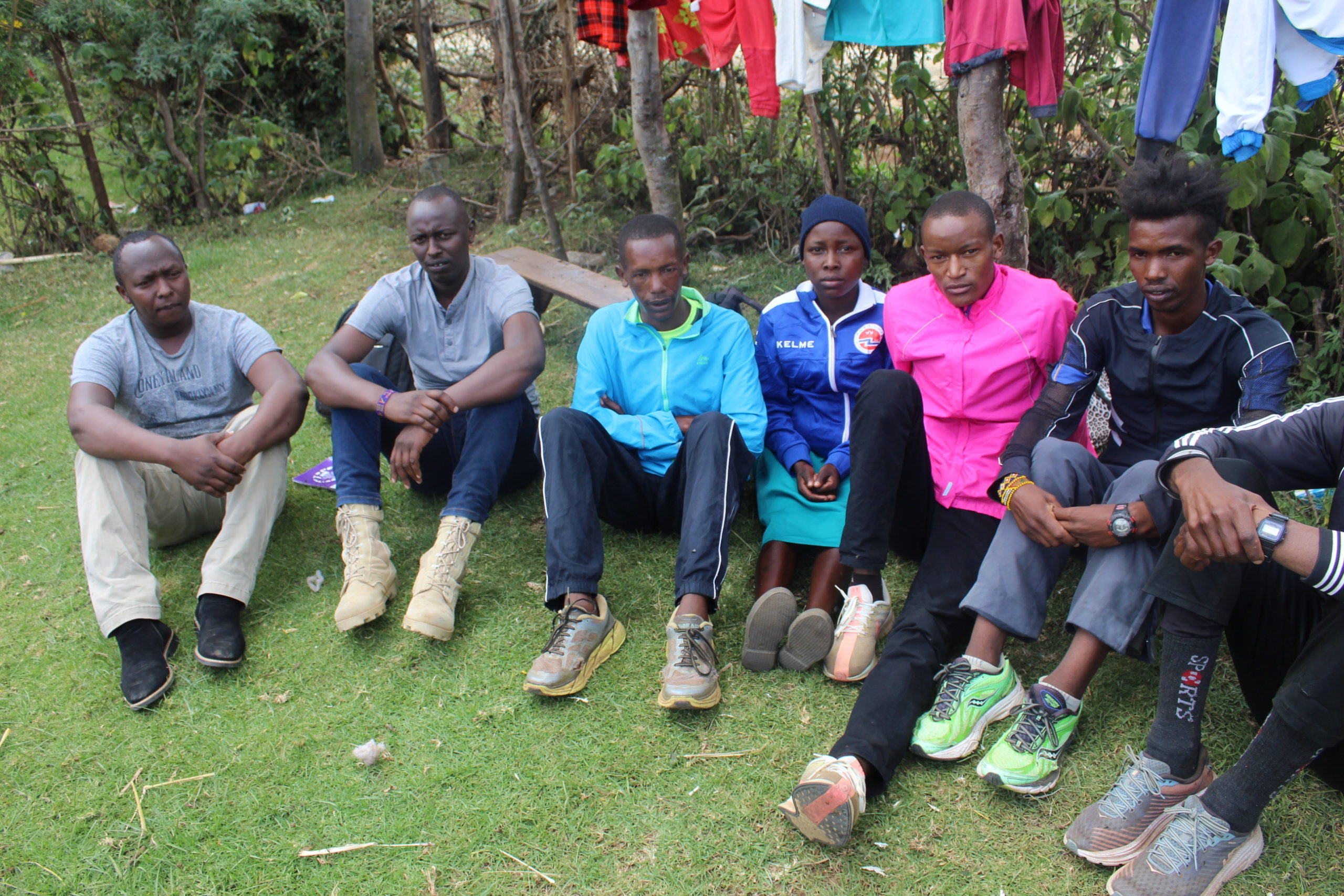
Simon Cheriro, a 33-year-old father of four, is from Inkinge village in Nessiut Location, east of Mau. He recalls how he has missed several major athletics competitions because he is poor and comes from a humble minority background.
“I started running in 2013 and have participated in many competitions, including Kass Marathon and Egerton university marathon among many others,” said Cherio.
“I started training in preparation for the Tokyo Olympics and managed to qualify for a slot for the national team trials in Nairobi.
“I finished fifth in the 1,500m trials and my spirits were high because I knew I would represent Kenya at a global event. I went home after that and I could not report back for the final qualifying because I didn’t have the bus fare to go back to Nairobi.
“That is how I was not selected. No one followed up on me, and being from a minority community, I had no way to even get some money to help me. I missed out on joining the Olympics team.”
“It’s so frustrating because as an athlete, I expected to be helped but no one came to my rescue. This was the lowest moment of my life.”
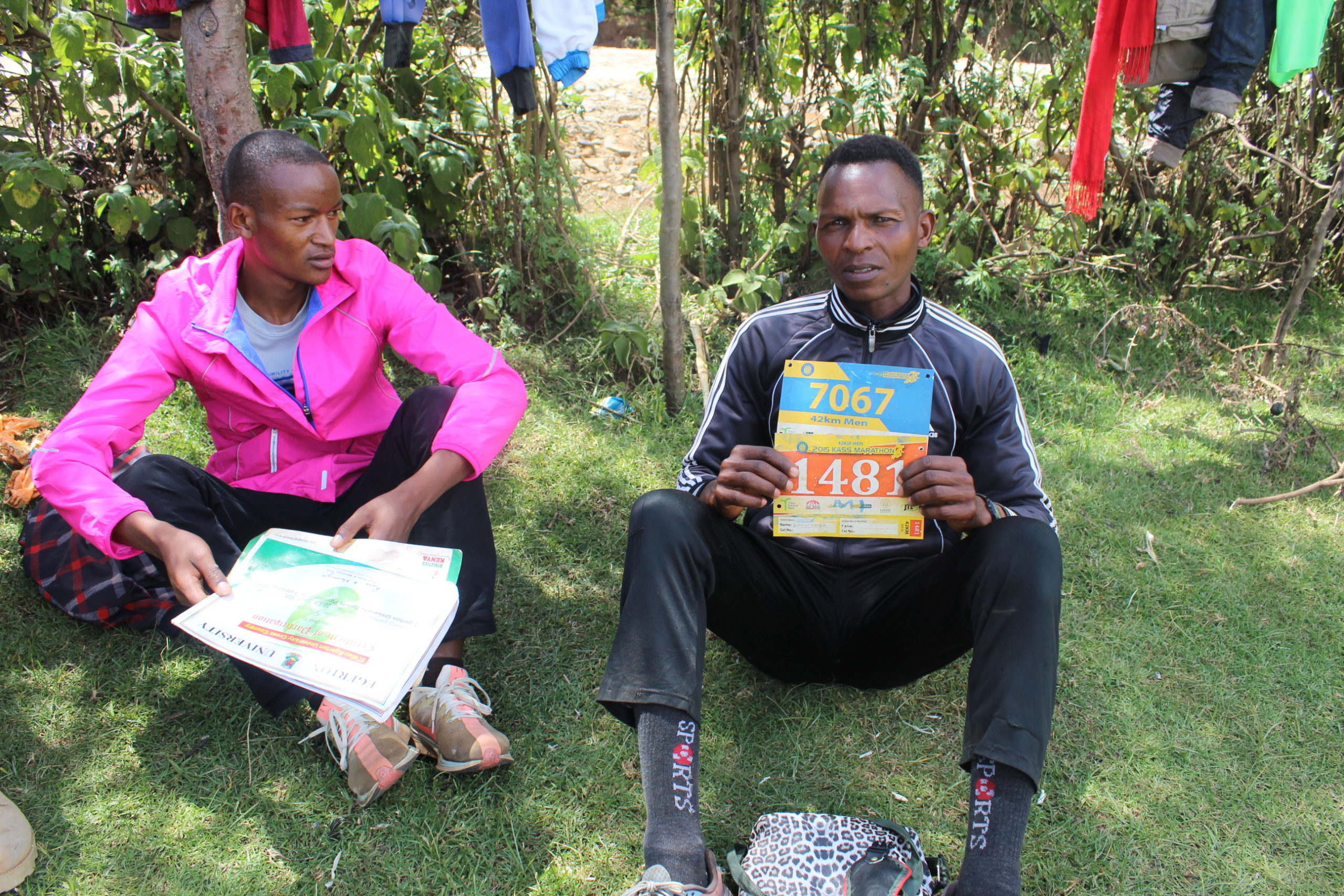
Benson Lemis, Cheriro’s coach confirmed that Cheriro missed one of the biggest opportunities in his life.” Cheriro went to Nairobi for the national team selection, he performed well but was not selected for the team to represent Kenya. We hope one day he will make it to the national team.”
Barnabas Korir, chairman of Youth Development at Athletics Kenya (AK), says he was not aware of Cheriro’s case. He says that all athletes who qualified for the national team participated in the Olympics.
David Wantai, who started running in 2010, also claims that talented upcoming athletes from his community suffer in their quest for selection.
“We are living in poverty and misery, no one, even our County of Nakuru, sympathizes with us,” Wantai told Talkafrica.
Wantai recalls how in 2019 he participated in an intercounty race in Nakuru, “ I was among top performers in the 20 km race where I was in the fourth position. I did not proceed further after this because of covid-19 disruptions and other logistical issues.”
The 34-year-old half marathon runner is also nursing injuries he suffered during an inter-county competition early last year. “I got injured in the field because I was wearing the wrong shoes. I don’t have proper running shoes and this adds more injury to my plight.”
“In 2014, I joined a training camp in Nairobi in preparation for a competition in Malaysia. I qualified to be part of the squad and was sent home to bring my parent’s documents to help process my passport. Sadly, I wasn’t able to return because I had no money for a ticket back to Nairobi. I did not call back the officials to seek help. I expected them to call me and inquire why I had not gone back. That was a big blow for me.”
Wantai lives in temporary accommodation with his parents, saying that he struggles to get basic needs like food and shelter.
The father-of-five reveals how he dropped out of secondary school as he could not pay the fees. He recalled how, when he was young, his father used to bring honey and bush-meat from the forest. Most other foods were too expensive and out of reach for them.
“We ate a lot of honey and meat, that was our main food which we could mix with fruits from the forest. Now, I do manual jobs to get some money for food for my family but the work is very irregular so it is very tough.”
Benson Lemis a 1,500m runner from the Ogiek, who volunteers to coach the athletes is also one of the athletes who missed opportunities. He says that he qualified during several intercounty races but has never been selected to move to the next level.
He says he started running while in high school but was not able to take up running because of many challenges, including a lack of training equipment and funding.
“I have tried to be recruited to the military more than 10 times without success,” Lemis told Talkafrica.
“In 2017 I participated an intercounty race in a 3000 m race and won, I was happy that I performed best and became position one. I really wanted to proceed further, maybe to be selected in a team but that did not happen.” Lemis narrates.
“After I realized that my struggles even to run were getting no attention, I resorted to manual jobs and helping in training some of these athletes. I now train athletes from this village for free. At times, I share with them the little money I get just to boost their morale.”
Saaya, the youth leader for the Ogiek people, believes that if athletes from his community were supported and given opportunities they would go far. “We are a small, forgotten community that no one bothers with,” says Saaya.
Saaya says that many young, talented women from the community get married out of frustration. “ For example, I know of a lady who was my neighbor and used to train with some of the best women athletes in Kenya now, she tried severally to access teams to pursue her dream in athletics but she did not manage to proceed, she is now married and dumped her career in athletes.”
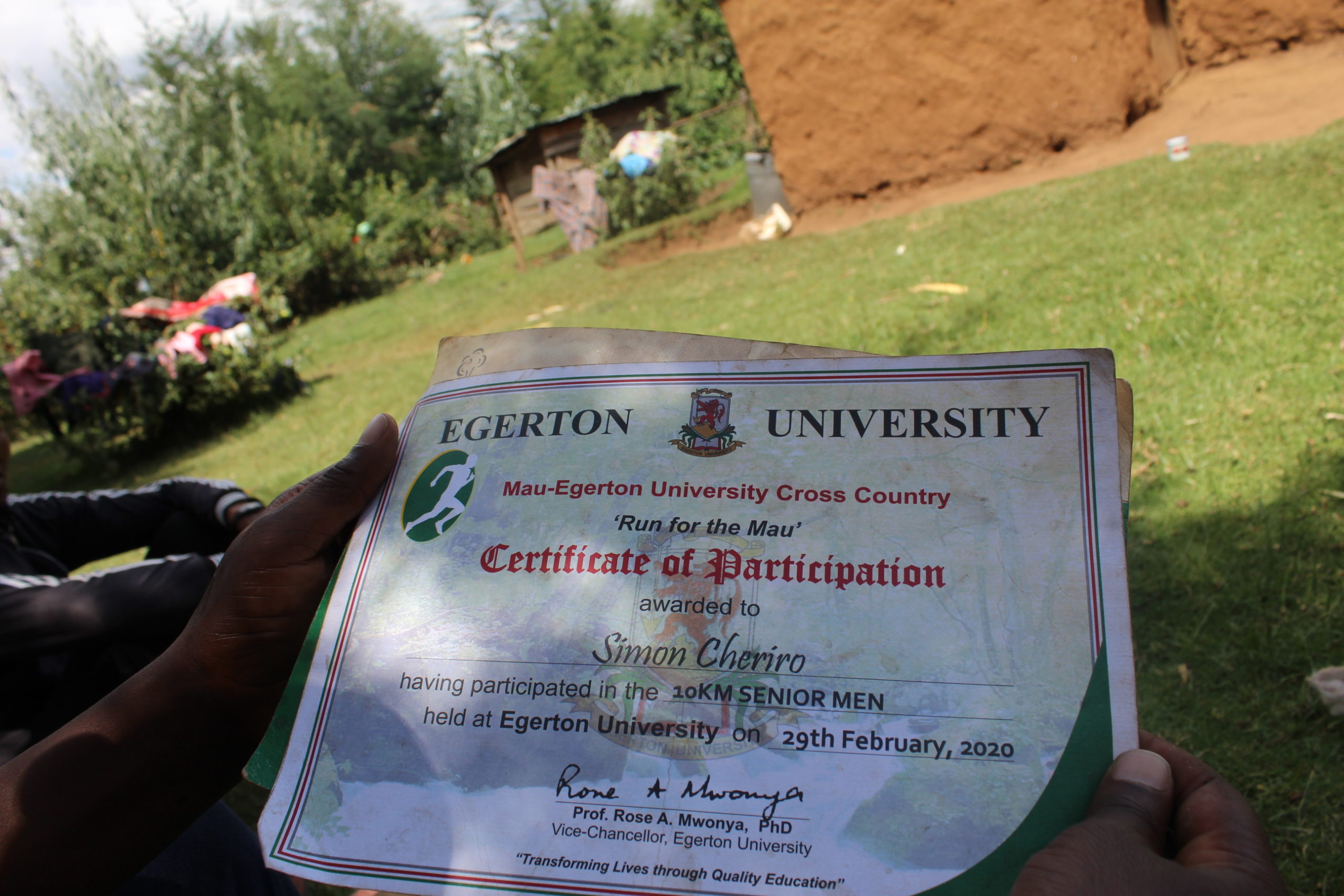
Korir, the Athletics Kenya official, says that the federation does not discuss minority groups because they have put structures in regions.
“We believe the minority groups like the Ogiek are covered within specific regions, the only difference is that we have to physically look for them and encourage them to come for training. The Ogiek need to look for training camps where they will join other athletes to allow them to get proper training and get noticed.
“There are many camps they can join provided they are willing to commit themselves to it.
“We have not left anyone behind, we understand that there might be challenges on the ground like lack of resources and training kits but this cuts across the entire country.”
Korir adds that no one from the Ogiek community visited their offices to seek help.
“We encourage and call upon any athlete from the minority groups who feel they have been discriminated or left out to come to our offices here in Nairobi and we will help them accordingly.”
Daniel Kobei, Director of Ogiek Peoples Development Programme, a local rights organization says that Ogiek people have been left behind in all aspects of development including; education, health, governance, sports, and many others.
“We do not have representation in governance issues, in recent times we had the only nominated senator from Ogiek and sadly he died a year ago. During his tenure he could not push for anything for our benefit, it was just difficult because we are a minority group.”
“Evictions from the Mau forest have been the biggest challenge for the Ogieks. The government has ignored the African court ruling and this has resulted in more suffering to the Ogieks.”
They keep evicting the Ogiek community in the forest saying they are encroaching, then the politicians negotiate and return them on a temporary basis. Right now some Ogieks live in Mau others are spread in neighboring towns like Narok.
Kobei says that as an organization they are trying to work on ways to support athletes from the Ogiek. “ This is largely a government and athletics body issue where we have less authority, we just hope our athletes get an opportunity to showcase their talent to the world.”

